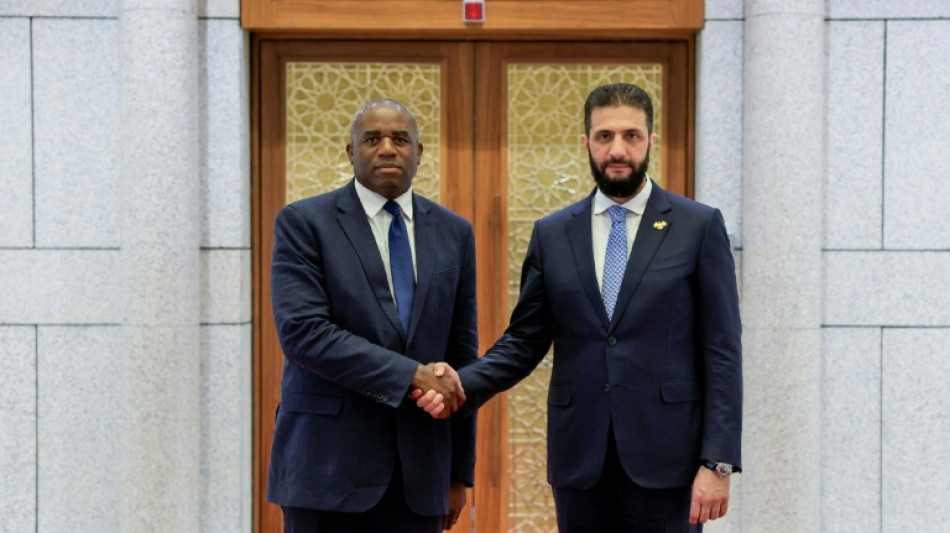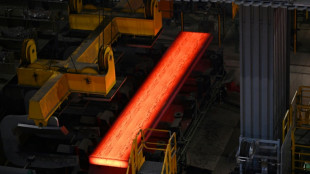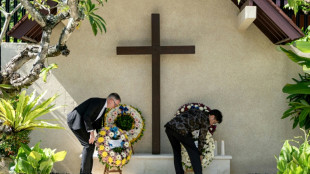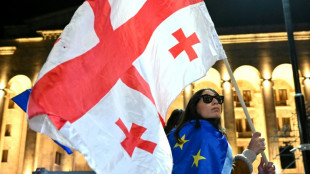
Britain reestablishes full Syria ties as FM visits Damascus

Britain reestablished full diplomatic relations with Syria on Saturday, more than a decade after cutting ties, as Foreign Secretary David Lammy met the country's new leader Ahmed al-Sharaa in Damascus.
In 2011, Britain was among the first countries to acknowledge rebel groups as the official Syrian government after then-president Bashar al-Assad's crushing of pro-democracy protests plunged the country into civil war.
London also joined sanctions against Syria and later closed its embassy in Damascus, going on to launch air strikes on Assad's forces.
Assad was ultimately toppled in December after more than 13 years of fighting by a rebel offensive led by Sharaa, now Syria's interim president.
"The UK is reestablishing diplomatic relations because it is in our interests to support the new government to deliver their commitment to build a stable, more secure and prosperous future for all Syrians," Lammy said in a statement.
Photos released by Sharaa's office showed him and Lammy meeting alongside Syrian Foreign Minister Asaad al-Shaibani.
Their discussions addressed "bilateral ties... and ways of strengthening cooperation, as well as regional and international developments", the presidency said in a statement.
The Syrian foreign ministry issued a similar statement following a separate meeting between Lammy and Shaibani.
Lammy said a stable Syria would benefit Britain by "reducing the risk of irregular migration, ensuring the destruction of chemical weapons" and "tackling the threat of terrorism".
Britain's Foreign Office said Assad's overthrow was an opportunity to "fully declare and destroy Assad's evil chemical weapons programme", adding that London had contributed an additional $2.7 million to the Organisation for the Prohibition of Chemical Weapons to help Syria do so.
In 2018, the UK joined US air strikes on Syria's chemical weapons in response to a suspected poison gas attack by Assad's forces.
- Sanctions lifted -
Syria has experienced a flurry of diplomatic activity in the months since Islamist-led forces ousted Assad.
In May, Syrian Defence Minister Murhaf Abu Qasra met with an official British delegation, the defence ministry said at the time.
In April, the British government announced it was lifting sanctions imposed on Syria's interior and defence ministries under Assad.
It also said it was removing sanctions against various media groups and intelligence agencies, as well as on some sectors of the economy including financial services and energy production.
A month earlier, it ended sanctions on 24 entities including Syria's central bank.
The United States has also lifted sanctions on Syria and is planning to remove it from its list of state sponsors of terrorism.
Last month, Damascus carried out its first electronic transfer through the international banking system since the imposition of sanctions.
The growing international backing comes as Syria's new leaders attempt to rebuild the country and reboot its moribund economy, both ravaged by the conflict and crippling sanctions.
Britain's Foreign Office said London had committed an extra $129 million to provide "urgent humanitarian aid" and support Syria's reconstruction as well as countries hosting Syrian refugees.
F.dAangelo--INP

 London
London

 Manchester
Manchester
 Glasgow
Glasgow
 Dublin
Dublin
 Belfast
Belfast
 Washington
Washington
 Denver
Denver
 Atlanta
Atlanta
 Dallas
Dallas
 Houston Texas
Houston Texas
 New Orleans
New Orleans
 El Paso
El Paso
 Phoenix
Phoenix
 Los Angeles
Los Angeles



